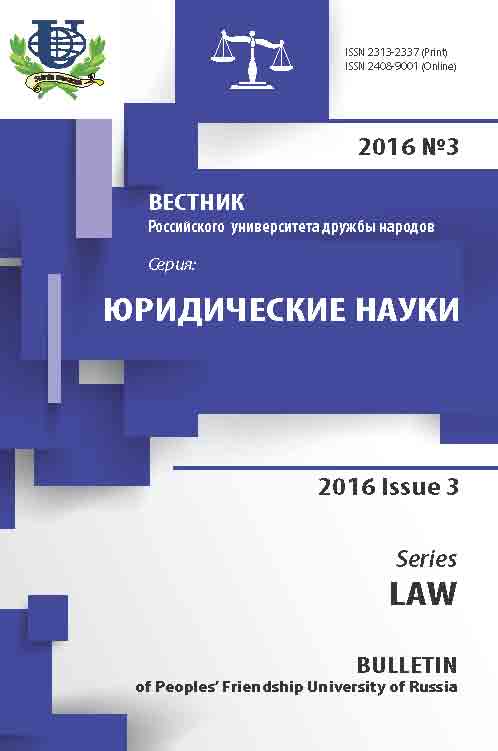Main Forms of Inter-State Cooperation in the Field of Migration
- Authors: Kiseleva E.V1
-
Affiliations:
- Peoples’ Friendship University of Russia
- Issue: No 3 (2016)
- Pages: 90-105
- Section: Articles
- URL: https://journals.rudn.ru/law/article/view/14784
- ID: 14784
Cite item
Full Text
Abstract
Unity of all movements of the population covered by the concept of migration as a subject of international legal regulation, in terms of risks and the potential for States, societies and individuals objectively pushes States to a comprehensive approach towards the phenomenon of migration. Inter-State cooperation on migration issues is being developed in different forms: treaty form and non-treaty form. And in all cases a share of inconsistency remains. Cooperation of States in the form of international agreements has not resulted yet in a comrehensive treaty on migration, on the contrary, the demand for such a treaty still follows from the analysis of only non-legally binding instruments, such as those by the UN General Assembly. Nowadays, one can only single out the blocks on the most important aspects of migration, e.g. human rights, fight against crime, etc., i.e. agreements developed as part of other branches of public international law, but applicable to the situation of migration. The exception here is refugee law that developed more or less on its own. However it covers one problem of migration out of many, and, thus, is an exception that proves the rule. Non-treaty (or institutional) form of cooperation of States also lacks a single unit, authorized by States to a comprehensive approach towards migration aimed at developing the commitments (obligations) in this area and control mechanisms over the execution of those commitments. There are a lot of international intergovernmental organizations touching migration within their respective competences. Duplication of their activity is monitored through coordination mechanisms. States' need for cooperation is further satisfied through non-binding «processes», «fora», «initiatives» operating at regional and universal levels. Author's opinion on the root-cause of the situation lies in the belief that effective and transparent co-operation can only be based on the true coordination of the wills of the States, whereas at present, the discussions of migration topics at the universal level are based on systematically distorted data, despite all the calls for the creation of the reliable multifaceted factological base. It seems to the author that the latest plans to develop by 2018 global compacts on migration and refugees, correspondingly, are not capable of radically changing the situation.
Keywords
international law, migration, international legal regulation of migration, cooperation between States, forms of cooperation between States, treaty-form of cooperation between States, institutional form of cooperation between States, refugees law, human rights, human rights protection, development, Summit addressing large movements of refugees and migrants
About the authors
Ekaterina V Kiseleva
Peoples’ Friendship University of Russia
Email: kiseleva_ev@pfur.ru
Law Institute 6, Miklukho-Maklaya st., Moscow, Russia, 117198
References
Supplementary files















